Dance of Cards toes the line between narrative adventure and tactical RPG. On the surface, it might just look like a series of poker matches with mildly interesting and impactful stats, but it’s so much more. It’s a thriller, with new questions presenting themselves as you get the answers to others at every turn, and a focus on games of chance that force you to rely on strategy both in and out of the action. There’s a lot to dig your teeth into if you’re willing to be open to a completely new experience, one that will soak up dozens of hours of your time.
Dance of Cards key details
- Developer: GoodMorningMrFrog
- Platforms: PC via Steam
- Release Date: April 14, 2023
- Cost: $9.99
Not Your Average RPG
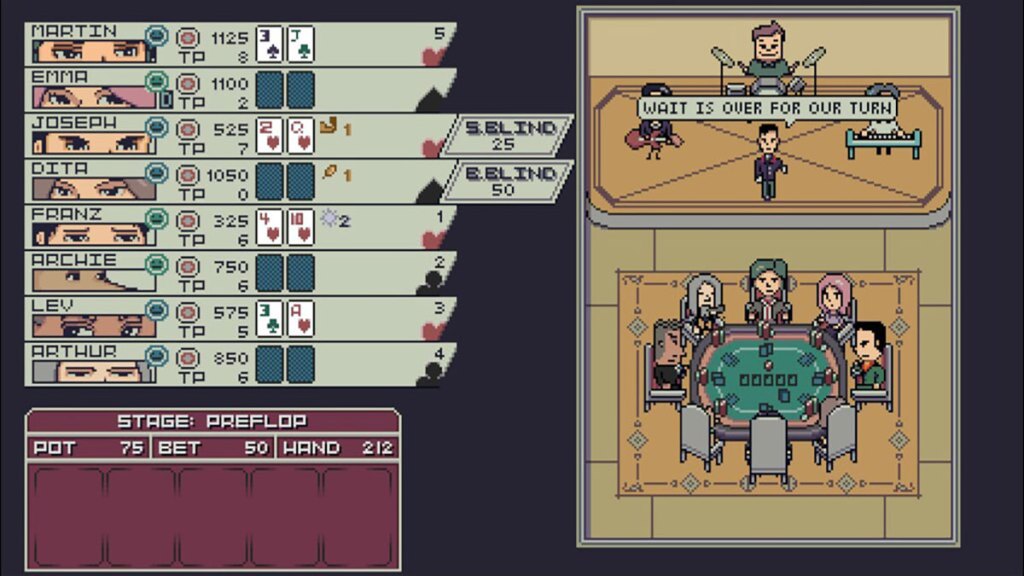
The story of Dance of Cards does a great job of easing you into the core mechanics of the main thing you’ll be doing, playing poker. You play as Martin, a magician in a traveling show that’s just about to head out of town to the New World. After a quick introduction to poker and several other games of chance, you board the Magnific on a seven-day cruise to your destination. However, things quickly take a turn for the worse when the captain reveals, for some inexplicable reason, the entire ensemble of colorful characters heading for a fresh life in a new country must now battle it out in a prolonged, poker-themed battle royale.
Over the course of seven days, you’ll team up with characters of your choice to compete in poker games each night. If you lose, you risk death. Even if you win, you can risk your life to save a few members of the opposite team. No matter how well you play, the passengers are slowly whittled down day by day. As everyone conspires against each other, pulls together for story revelations, falls in love around you, and much more, the story ultimately heads toward a Titanic iceberg of a revelation that ties everything you’ve seen and done together for a satisfyingly brutal ending.
The entire crew of the ship consists of soulless androids driven by a single menacing purpose, to force everyone to play poker to death. It plays so well into the story because they are the unrelenting malevolence pushing everyone together and closer to death each evening, and you never question why. They’re programmed to make your life and the lives of those around you a waking nightmare, so that’s exactly what they do. A nice touch with these androids is how they play the music in every poker game’s background, and you can read the lyrics of each song that reflect the seething anger lurking behind the overarching storyline as well as their role in it. There are a few moments like this throughout the game that act as pins in a corkboard. When you reach the end and take a step back, you can suddenly see how all their threads connect, and it’s a brilliant moment of clarity.
While there are, unfortunately, a few lines of dialogue that feel out of place or are missing a word, they don’t break the game or ruin your immersion at all. There’s a definite lack of polish in small parts of Dance of Cards like this that hold it back from being perfect, but they’re very easy to ignore, so you can keep enjoying yourself.
The Heart of the Cards
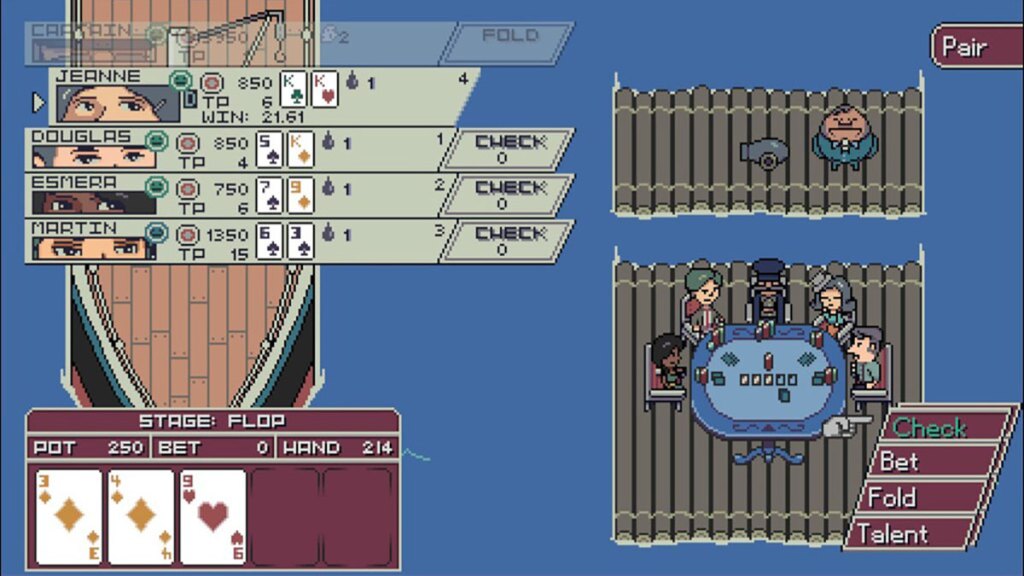
There’s only one constant in Dance of Cards, and that’s poker. The game has been streamlined so it not only fits with the gorgeous pixel art, but it’s incredibly easy to understand and master. However, the game throws sixteen curveballs your way in the form of Talents, that passengers can use to turn the tide in any game. These are effectively special abilities, allowing Martin to swap cards later in a hand, Emma to mimic the last used ability, Franz to put another passenger to sleep, and so on. The sheer range of Talents on offer is overwhelming, adding to the game’s replayability.
I found myself strategizing in every poker game based on the Talents of those on my team. Martin’s Talent is incredibly powerful, one of the best in the game, but there are so many that can be used alongside it to soak up the chips from those on the opposing team and get them eliminated. One possible downside to the Poker system is that once you’ve got more chips than your opponent across any player on your team, you can have everyone else fold and wait out the hands until they lose. It feels like cheating, but you’re never forced to play this way or avoid it. The thrill of playing those final few hands of poker and risking a loss when starting in such a strong position is tempting, but it’s much easier to fold your way to victory and have your team survive another night.
When you emerge from a game victorious, you’ll have the chance to play a second game of chance to save a few members of the opposing team. These games are easy to learn, and all have explanations you can read before they start, but they’re not very fleshed out. That’s sort of the point though. They’re meant to be simple games that rely more on luck than skill because that’s what this game’s about. You’re putting your life and those of others on the line for little more than a gut feeling. It’s almost traumatizing seeing tiny horses move across a screen painfully slow, knowing that as soon as one crosses the line that isn’t number 6, Martin will be executed.
Dance of Cards is extremely matter-of-fact about life and death, and it fits not only contextually with the story. It does a tremendous job demonstrating why it’s so easy to get addicted to gambling. When someone’s always offering you a chance to retry, you’ll take it because the stakes seem so high, regardless of the price. So often, games shy away from digging into this idea, but Dance of Cards puts it at the forefront for all to see. In a world where monetization is running rampant in games as a service, it’s refreshing to see an indie title point out the extremes that people are willing to go to for the sake of games of chance.
Related: April 2023 Indie Spotlight: OTXO, Rusted Moss & Dance of Cards Light up Imaginations
A True RPG Microtale
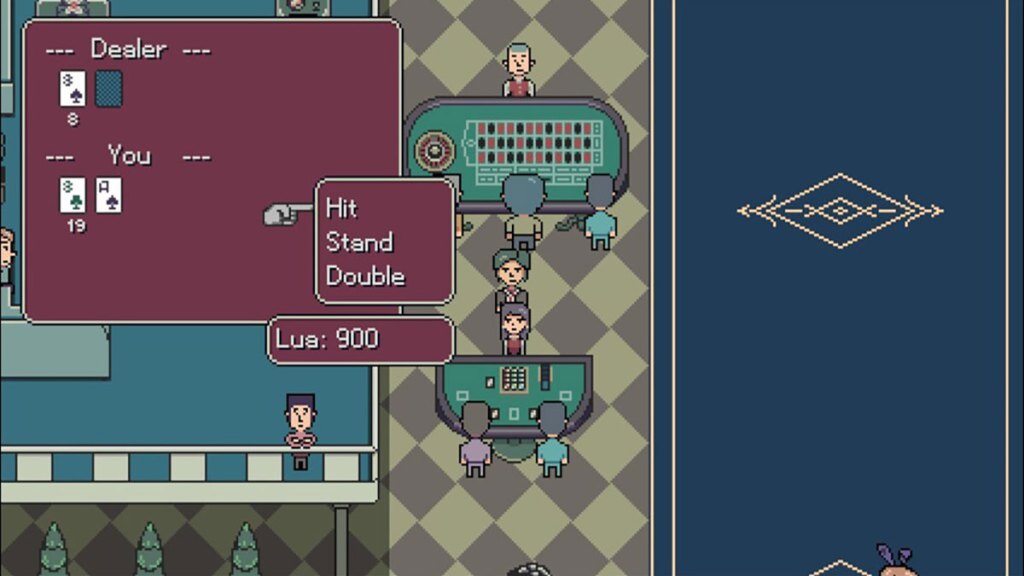
Each day reveals a new story beat told through cutscenes and gameplay sequences, some of which allow you to actively participate more than others. Outside of those sequences, you get two instances of free time every day. You need to use this time to speak to the other passengers on the ship and build Martin’s relationship with them. This is how you learn more about the other characters in the game, but there’s nowhere near enough time to see everything in a single playthrough. Each time you start a new game, you can befriend new passengers, see poker games play out differently, and actively change the central moments of the story to see how things transpire.
There are items you can pick up throughout the story by earning extra cash or exploring that will change the base stats of characters to give them better luck or poise in a game, and winning games earns them experience and improves their mastery level. I honestly didn’t feel any difference in poker games with improved luck or any other stat. Instead, some poker games feel like boss battles, stat checks to see if you’re ready for what lies ahead, except they test your skill and knowledge of poker instead of a character’s stats. This might have been more impactful if you had a set party for the entire game. As it stands, it feels very much like you can ignore the stats as long as you play well with Talents and pay attention to the cards in each game.
These systems should play into the story as it moves through new regions of the world, providing environmental feedback to back up difficulty spikes. However, because Dance of Cards takes place almost entirely on a single cruise ship, the game leans into visions, dreams, and backstories to flesh out the world and throw in a few memorable, flashy sequences. My favorite is a fantastical journey with a few of the passengers through an undersea cave and onto a desert island. From there, you have to battle who you believe to be the ship’s captain in a game of poker while someone else batters his ship with a canon. It’s pure madness and just what you need at that point in the story to give everything a spark of excitement.
Every area in Dance of Cards is gorgeously detailed in a unique style that looks like it’s a little bit further than pixel art. Characters have more definition and personality, as does every building or room. I never got lost exploring the ship or anywhere else, and I think that’s a testament to how seriously the design has been taken into account at every step of the way.
The Verdict
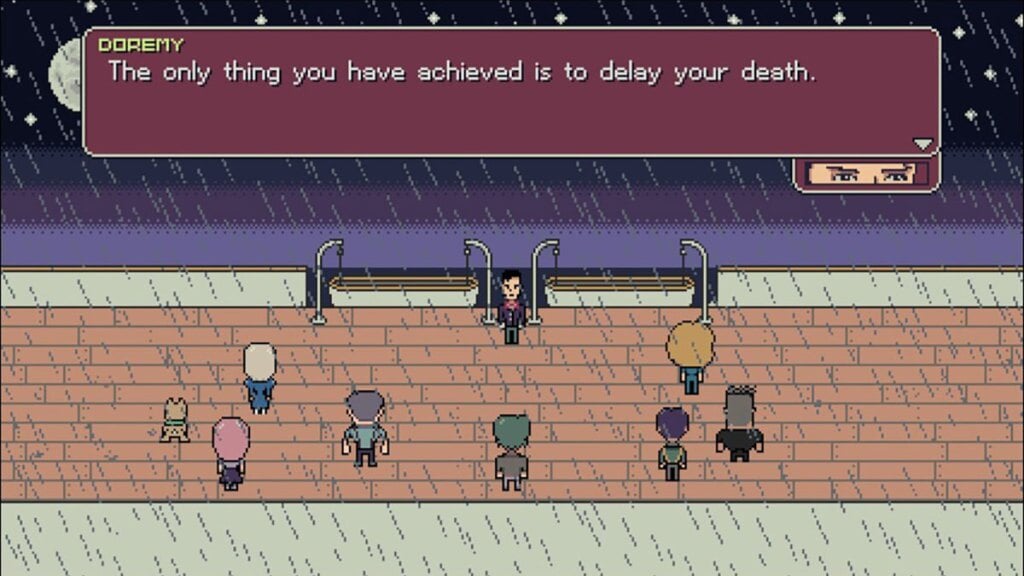
I had such a good time with Dance of Cards. I completed the game in just over 10 hours, but that was with the bad ending, which includes the brutal punishment of deleting your save file before the final game of poker. I felt exhausted by the finale, but I want to jump in and play another 10 hours just to see the good ending. It’s a game you can dip in and out of with ease and always remember where you are in the story. I’ve never played anything like this, and the blend of RPG mechanics with poker and a very strange take on the idea of a battle royale is just too good to ignore. If you’re after a meaty indie game along the same vein as Fear and Hunger but without the punishing difficulty, Dance of Cards is it.
Final Score:
8 / 10
| + | Easy to learn poker system that’s always fun to play. |
| + | Great story that will blow your mind. |
| + | Incredible environmental storytelling. |
| – | Some dialogue issues. |
| – | It feels like you can cheat your opponents by being rich in some poker games. |
| – | The stats don’t seem to change anything. |
Gamepur team received a PC code for the purpose of this review.

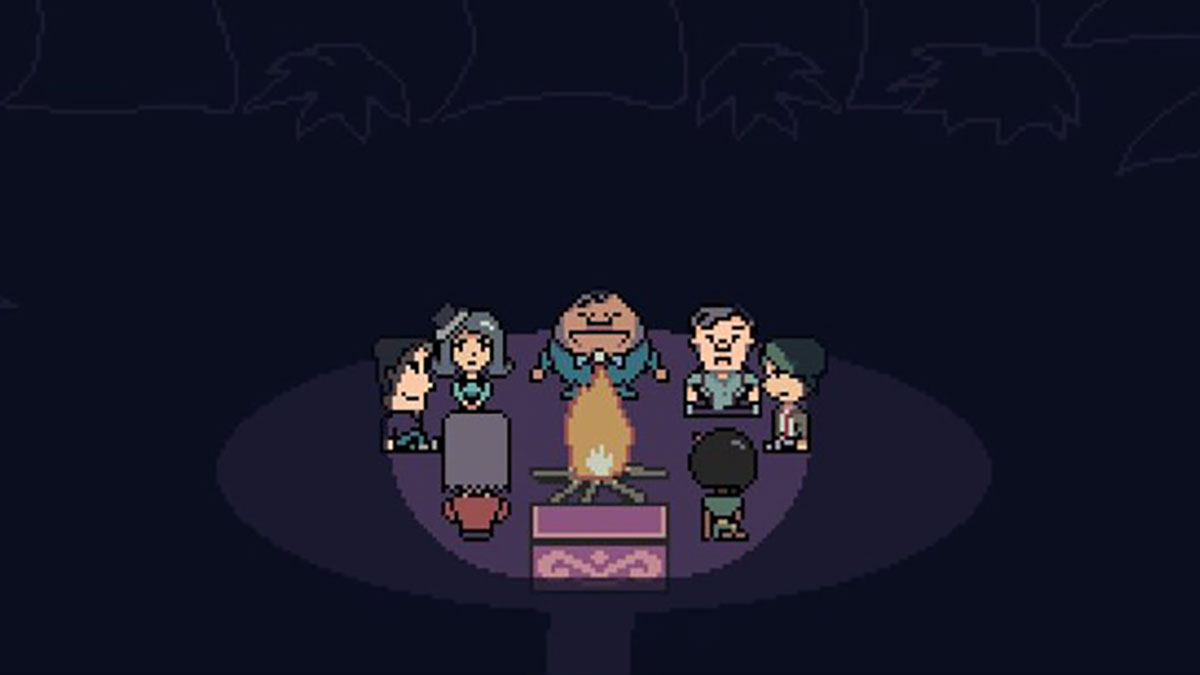

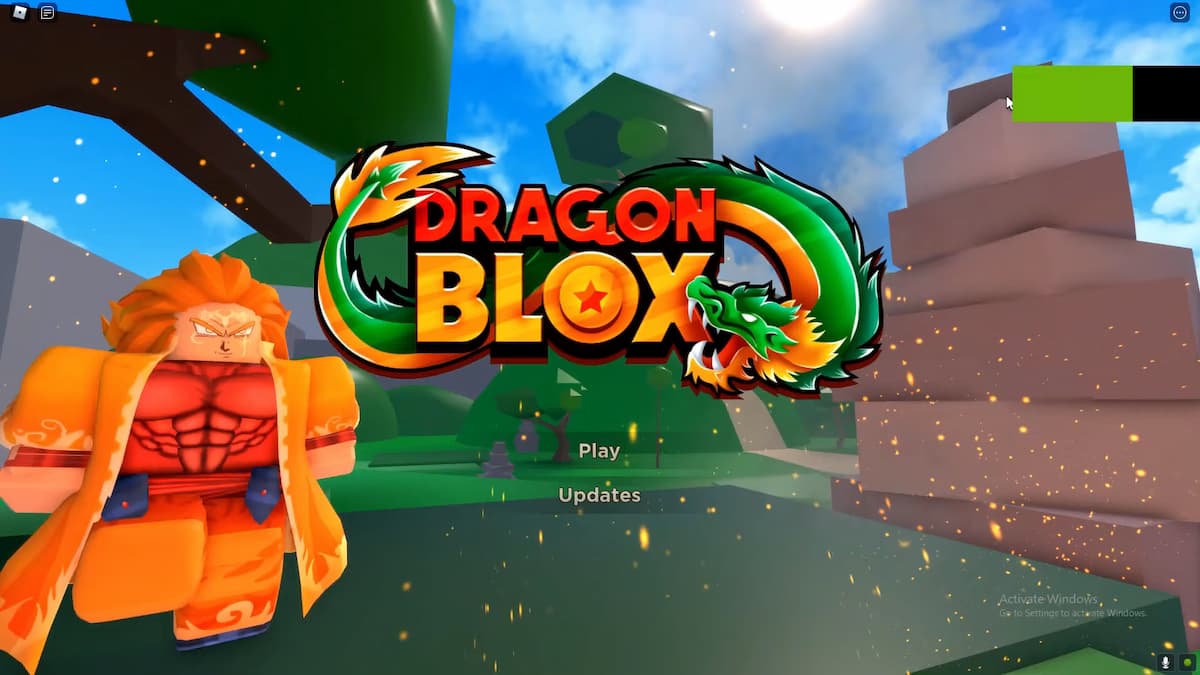
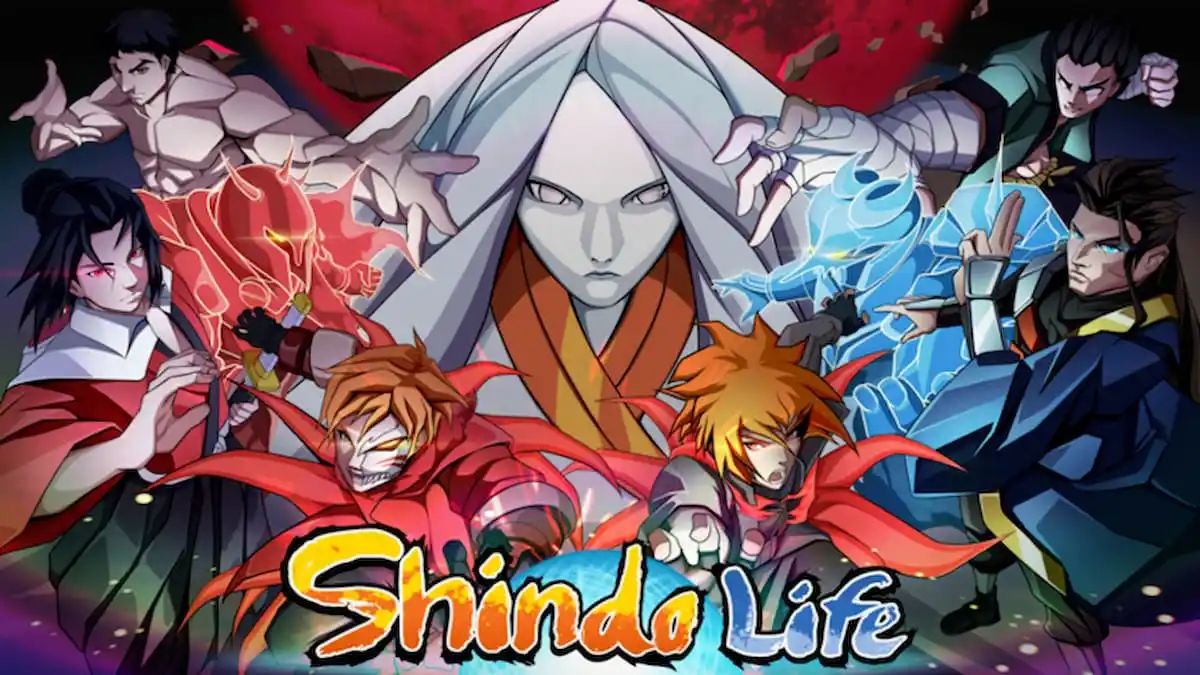
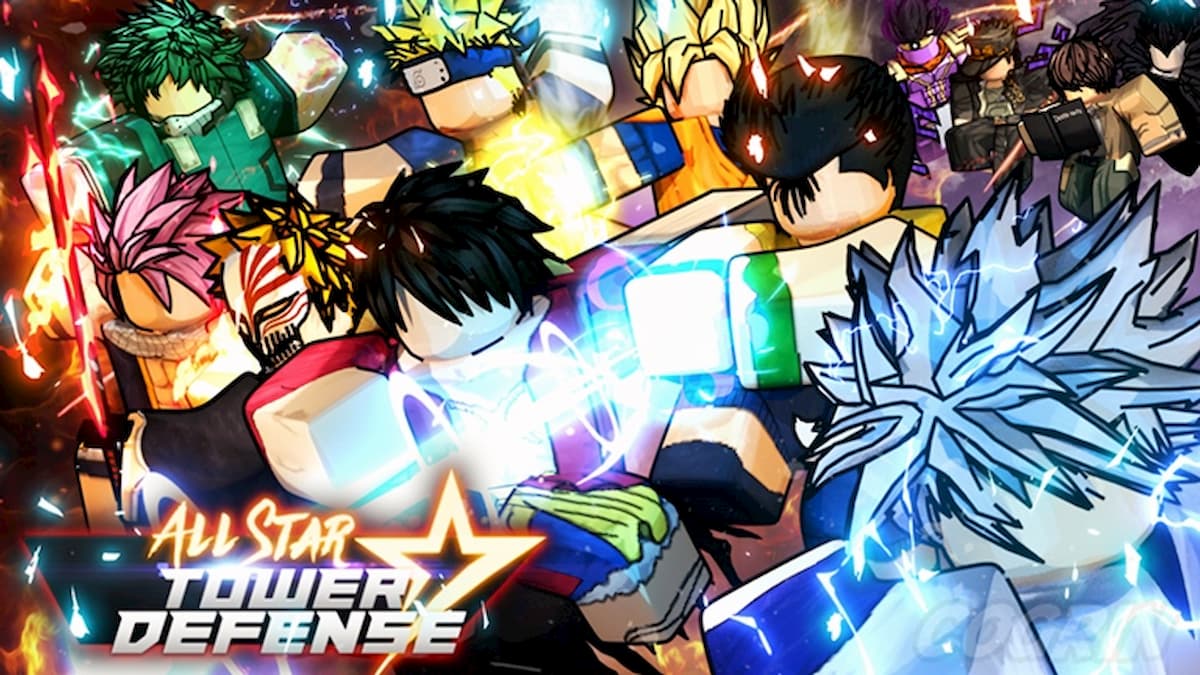
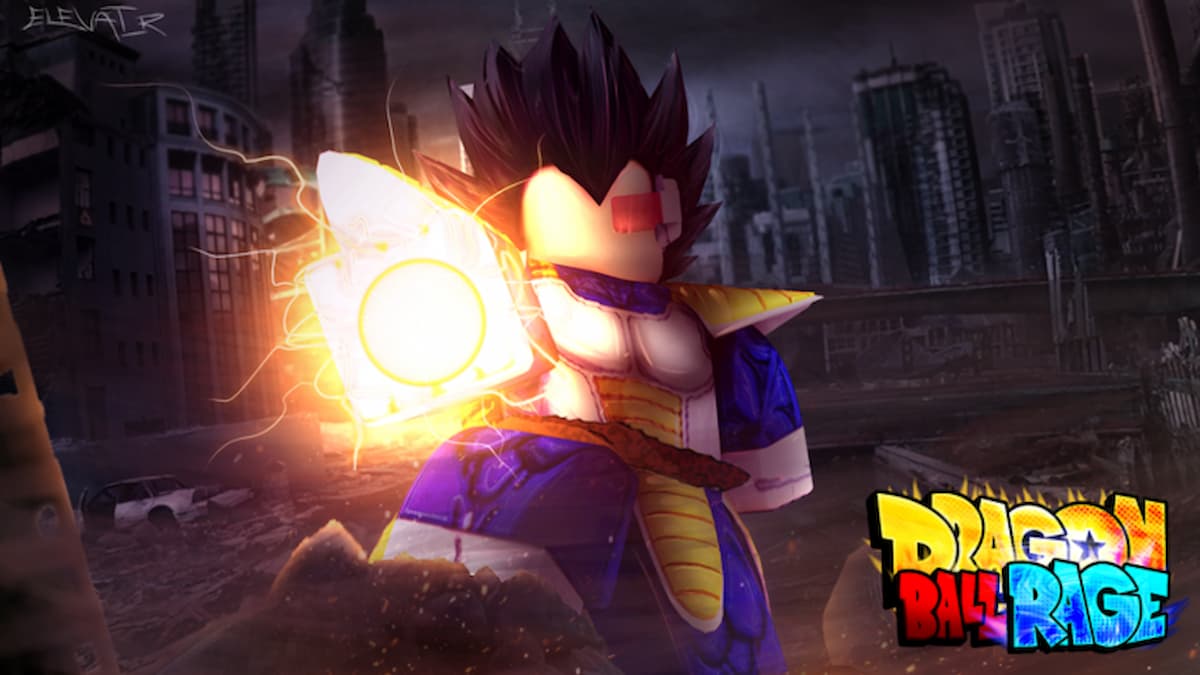
Published: May 11, 2023 11:50 am